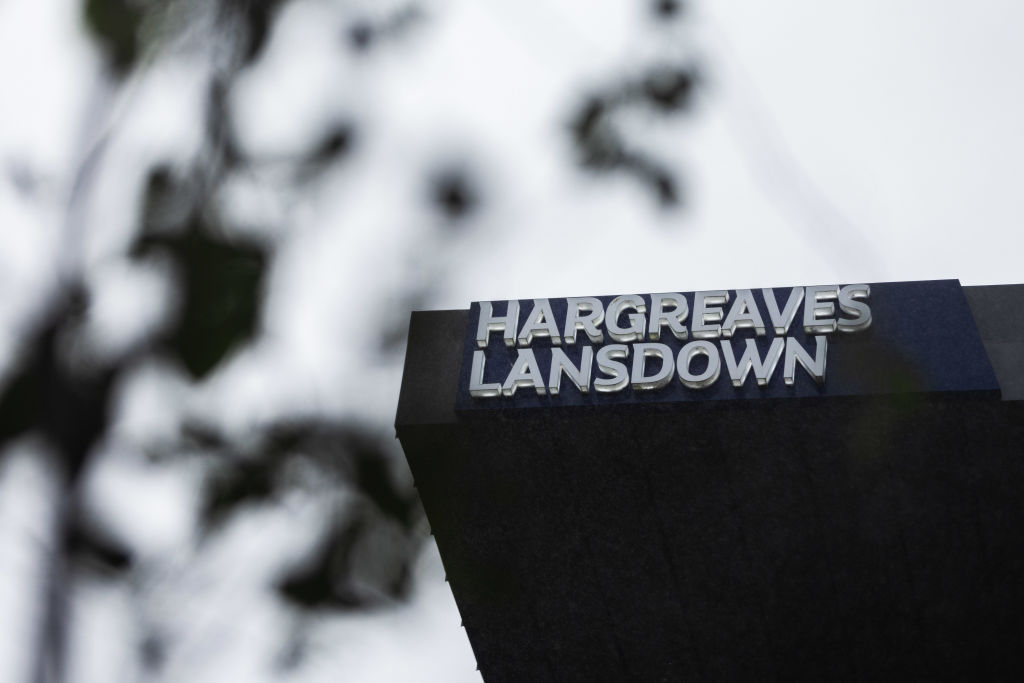If you think Hargreaves Lansdown is too expensive, threaten to leave
Fund supermarket Hargreaves Lansdown has adopted the mobile phone companies' favourite tactic.

Get the latest financial news, insights and expert analysis from our award-winning MoneyWeek team, to help you understand what really matters when it comes to your finances.
You are now subscribed
Your newsletter sign-up was successful
Want to add more newsletters?

Twice daily
MoneyWeek
Get the latest financial news, insights and expert analysis from our award-winning MoneyWeek team, to help you understand what really matters when it comes to your finances.

Four times a week
Look After My Bills
Sign up to our free money-saving newsletter, filled with the latest news and expert advice to help you find the best tips and deals for managing your bills. Start saving today!
Hargreaves Lansdown wants to have its cake and eat it.
It wants to carry on charging more than most of its rivals. But it doesn't want to lose its wealthier customers.
So, it's adopting the mobile phone companies' favourite tactic. If you threaten to join a rival phone network, you may be offered a new special deal with lower prices.
MoneyWeek
Subscribe to MoneyWeek today and get your first six magazine issues absolutely FREE

Sign up to Money Morning
Don't miss the latest investment and personal finances news, market analysis, plus money-saving tips with our free twice-daily newsletter
Don't miss the latest investment and personal finances news, market analysis, plus money-saving tips with our free twice-daily newsletter
A report on the MoneyMarketing websitecites "anecdotal reports" from customers which suggest that Hargreaves is willing to negotiate on fees or cap the cost of holding assets.
Interestingly, a Hargreaves spokesperson admitted to MoneyMarketing that it may make "exceptional arrangements" for some clients.
The spokesperson said: "Our pricing tariff is clearly stated and is designed to be fair, competitive and sustainable. It is not our standard approach to have individual arrangements with 577,000 clients this would simply be unworkable."
So, it sounds like Hargreaves is prepared to offer discounts to some richer clients who threaten to leave, but probably not to everyone across the board.
I'm pleased that at least some Hargreaves customers will get better deals, but I'd be much happier if Hargreaves cut its prices for everyone.
Under its new pricing structure, most investors will be charged an 0.45% annual platform fee on your invested assets (funds, shares, investment trusts, and venture capital trusts (VCTs)). There's a £45 charges cap for any shares or investment trusts you hold in an Isa, and a similar £200 cap for Sipps.
By contrast, Fidelity and rplan are both charging 0.35% a year, while Cavendish Online and Charles Stanley are even cheaper at 0.25% a year.
When it comes to share dealing, Hargreaves is more competitive, but it's not the cheapest broker. The standard share dealing charge at Hargreaves is £11.95 per trade, with a £5.95 rate for frequent traders.
At AJ Bell Youinvest, the standard dealing charge is £9.95, while the frequent trader rate is £4.95.
The plain truth is that Hargreaves could easily cut its fees if it wished. In its latest results, the platform provider revealed that its operating margin was 65%. No doubt that margin delights many Hargreaves Lansdown shareholders, but as a customer, I'm far from impressed.
I'm tempted to move my money to a different platform, but so far I've stayed with Hargreaves, because I like the firm's website and its excellent customer service.
Perhaps I should get on the phone and threaten to leave.
Get the latest financial news, insights and expert analysis from our award-winning MoneyWeek team, to help you understand what really matters when it comes to your finances.
Ed has been a private investor since the mid-90s and has worked as a financial journalist since 2000. He's been employed by several investment websites including Citywire, breakingviews and The Motley Fool, where he was UK editor.
Ed mainly invests in technology shares, pharmaceuticals and smaller companies. He's also a big fan of investment trusts.
Away from work, Ed is a keen theatre goer and loves all things Canadian.
Follow Ed on Twitter
-
 Average UK house price reaches £300,000 for first time, Halifax says
Average UK house price reaches £300,000 for first time, Halifax saysWhile the average house price has topped £300k, regional disparities still remain, Halifax finds.
-
 Barings Emerging Europe trust bounces back from Russia woes
Barings Emerging Europe trust bounces back from Russia woesBarings Emerging Europe trust has added the Middle East and Africa to its mandate, delivering a strong recovery, says Max King
-
 Hargreaves Lansdown takeover: what it means for your money
Hargreaves Lansdown takeover: what it means for your moneyBritain’s biggest investment platform has agreed a £5.4 billion takeover. What does it mean for shareholders and customers?
-
 Hargreaves Lansdown’s one-stop savings shop
Hargreaves Lansdown’s one-stop savings shopFeatures Should you sign up to Active Savings, Hargreaves Lansdown’s new product aimed at “time-poor” savers?
